NEWS
20 Budget-Friendly Foods for a Healthier Heart
Published
9 months agoon

Shutterstock
Maintaining a heart-healthy diet doesn’t have to be expensive. Many nutritious, heart-friendly foods are both affordable and easy to find, allowing you to eat well without overspending. Options like fiber-filled oats, omega-rich fish, and antioxidant-packed fruits and vegetables provide a range of economical and delicious choices for daily meals. Here are twenty such foods that promote heart health while being budget-friendly.
Frozen Berries
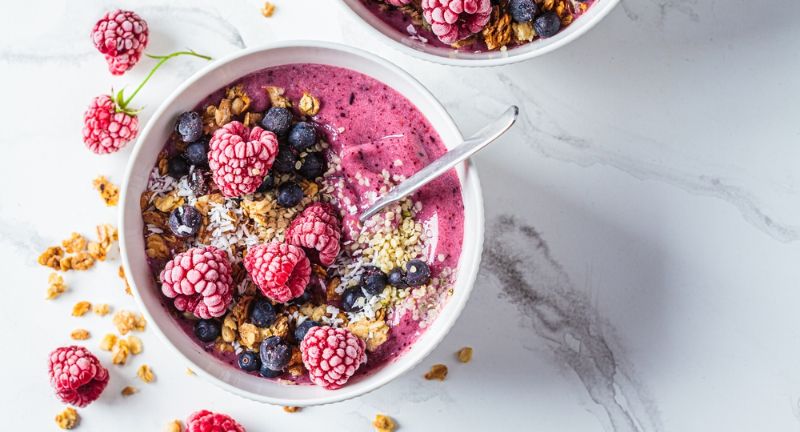
Shutterstock
Frozen berries are an economical alternative to fresh berries, packed with antioxidants, vitamins, and fiber crucial for heart health. They can lower the risk of heart disease and are versatile for use in smoothies, yogurts, and desserts. Freezing retains their nutrients, making them a convenient and nutritious dietary addition. Additionally, they are typically more affordable than fresh berries and are available throughout the year.
Tomatoes and Their Health Benefits

Shutterstock
Tomatoes are packed with lycopene, a potent antioxidant known to reduce the risk of heart disease. They are also abundant in vitamin C, potassium, and fiber, all crucial components for sustaining heart health. Versatile in nature, tomatoes can be incorporated into numerous recipes, ranging from salads to sauces. They are typically affordable, particularly during their peak season, and enhance both the taste and nutritional content of various dishes.
The Benefits of Bananas
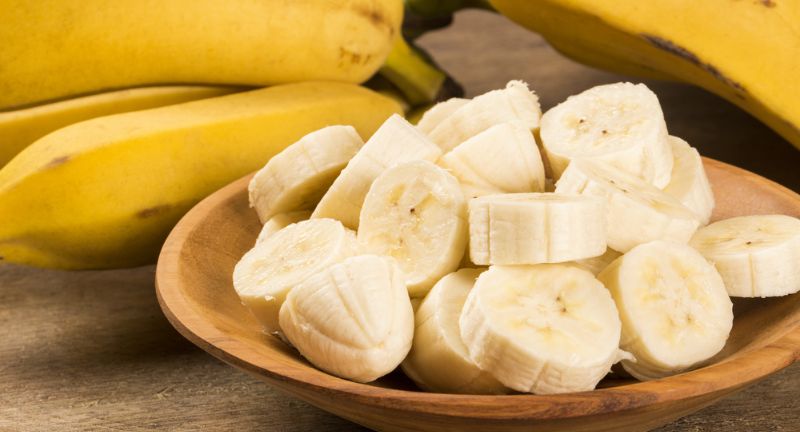
Shutterstock
Bananas are an excellent source of potassium, vital for heart health and regulating blood pressure. Rich in fiber, they can contribute to lowering cholesterol levels. Convenient and portable, bananas make for a great snack and can be easily added to cereals, smoothies, and baked goods. Additionally, they are among the most cost-effective fruits, making them a practical option for a nutritious diet.
The Heart-Healthy Benefits of Yogurt

Shutterstock
Yogurt, particularly low-fat or Greek varieties, offers significant benefits for heart health as it is a rich source of protein and calcium. Regular consumption of yogurt can aid in managing blood pressure and lowering the risk of heart disease. Enjoy yogurt on its own, blend it with fruits, or use it as a base in smoothies and dressings. This affordable, nutritious, and versatile food is easy to incorporate into a heart-healthy diet.
Health Benefits of Oranges

Shutterstock
Oranges are rich in vitamin C, potassium, and fiber, essential nutrients that contribute to heart health. These fruits help in lowering blood pressure and cholesterol levels. The high fiber content in oranges supports overall cardiovascular well-being. Not only are they a refreshing snack, but they can also be incorporated into various dishes or juiced for a nutritious drink. Oranges are usually affordable and easily accessible, making them a convenient choice for a heart-healthy diet.
Benefits of Oats
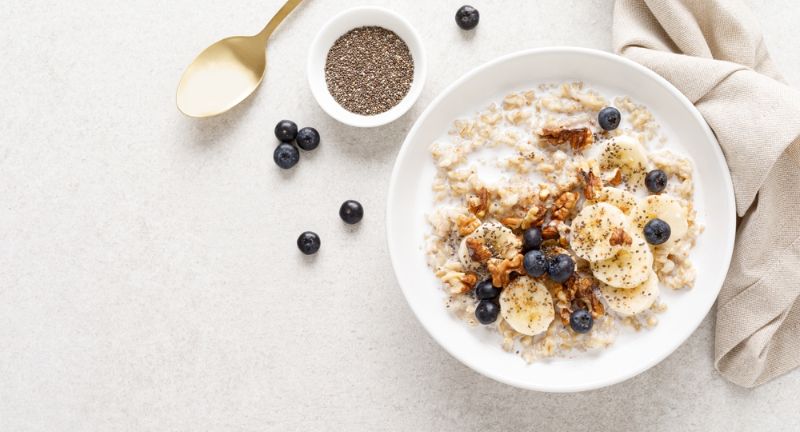
Shutterstock
Oats provide an excellent source of soluble fiber, aiding in the reduction of cholesterol levels and lowering the risk of heart disease. Known for their versatility, oats can be incorporated into a wide range of recipes, from breakfast porridge to baked goods. Additionally, oats have a low saturated fat content, reinforcing their status as a heart-healthy food. Their affordability and availability further contribute to their appeal as a staple in a nutritious diet.
The Benefits of Walnuts

Shutterstock
Walnuts are an excellent source of alpha-linolenic acid, a type of omega-3 fat that supports heart health. Consuming a handful of walnuts each day can help decrease the risk of cardiovascular disease. They are ideal for adding a nutritious crunch to salads or enjoying as a healthy snack. Additionally, walnuts have been found to help maintain healthy cholesterol levels.
Health Benefits of Apples
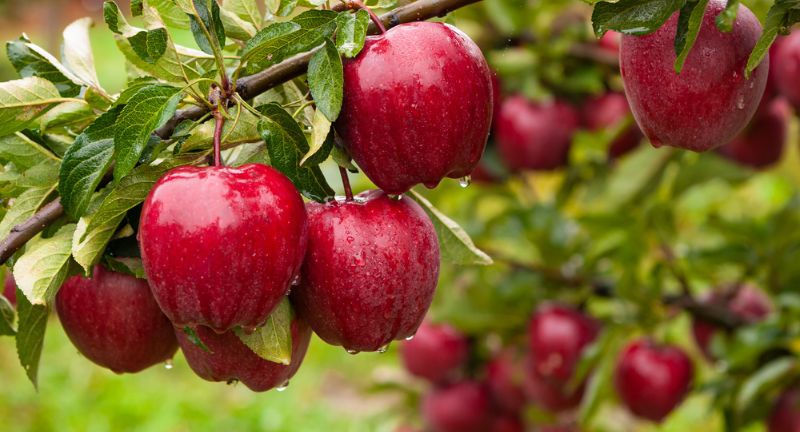
Shutterstock
Apples are a low-calorie source of fiber and vitamin C, essential nutrients that support heart health. Regular consumption of apples can aid in lowering cholesterol levels and provide protection against heart disease. They are a convenient snack, easy to eat on-the-go, and versatile in a variety of recipes, including salads and desserts. Additionally, apples are affordable, widely accessible, and have a longer shelf life compared to many other fruits.
Sweet Potatoes
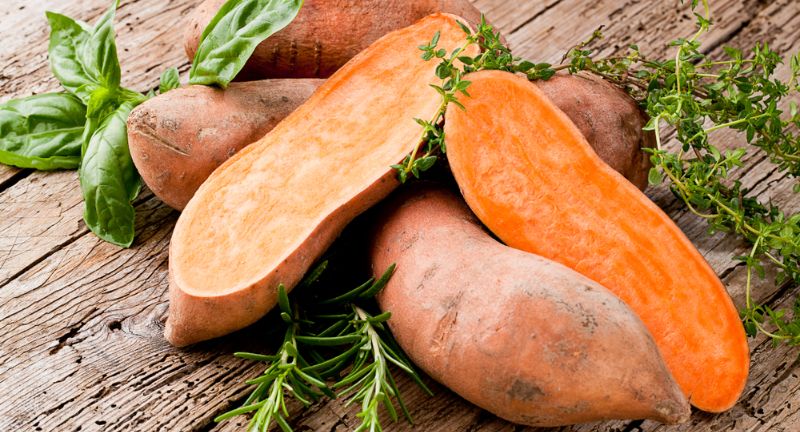
Shutterstock
Sweet potatoes are an excellent source of potassium, fiber, and antioxidants, which contribute to heart health. They assist in controlling blood pressure and lowering the risk of heart disease. Sweet potatoes are highly adaptable in the kitchen, suitable for both sweet and savory recipes. Moreover, they are generally more cost-effective than many other produce options and provide significant health advantages.
Flaxseeds
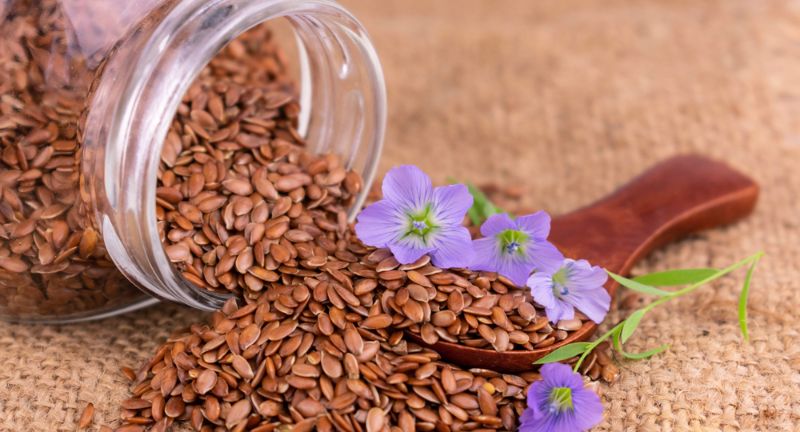
Shutterstock
Despite their small size, flaxseeds are rich in fiber and omega-3 fatty acids, which are advantageous for heart health. They can assist in lowering blood pressure and mitigating the risk of heart disease. Flaxseeds are easy to integrate into your diet as they can be sprinkled on yogurt, added to salads, or blended into smoothies. Their cost-effectiveness and health benefits make them a great addition to a heart-healthy diet.
Canned Salmon

Shutterstock
Canned salmon is a convenient and cost-effective substitute for fresh fish, offering a robust source of omega-3 fatty acids that are crucial for heart health. These fatty acids play a vital role in reducing inflammation and enhancing cardiovascular well-being. Incorporating canned salmon into salads, sandwiches, and pastas can boost your intake of heart-protective nutrients. Additionally, its long shelf life makes it a smart pantry staple for those mindful of their budget.
Nutritional Benefits of Brown Rice
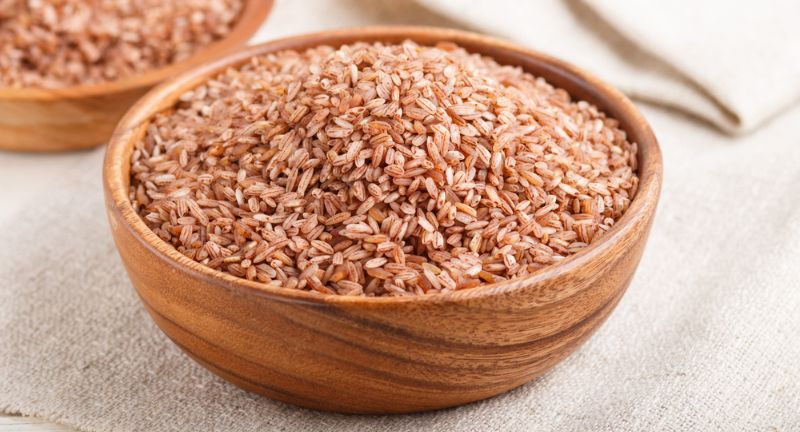
Shutterstock
Brown rice is a nutritious whole grain that offers essential magnesium, vital for heart health and blood pressure regulation. Additionally, it is rich in fiber, contributing to lower cholesterol levels. As a versatile staple, brown rice can be used as a side dish or included in numerous recipes. It is more nutritious compared to white rice and serves as an affordable option for maintaining a healthy diet.
Nutritional Benefits of Chickpeas
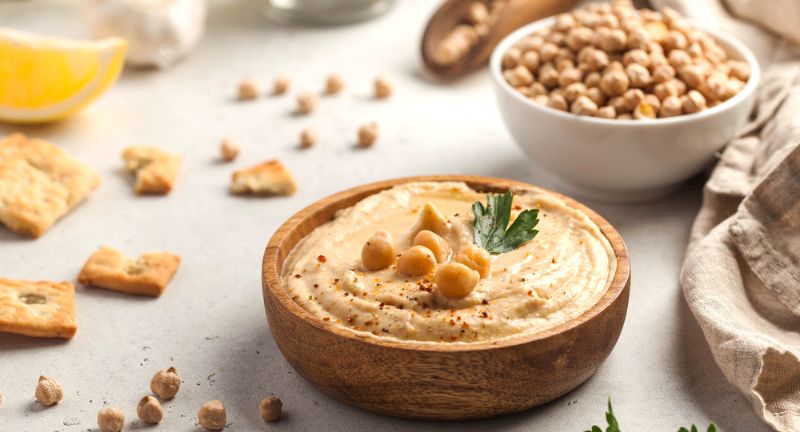
Shutterstock
Chickpeas are a robust legume packed with essential nutrients such as protein, fiber, and potassium. They play a significant role in managing cholesterol and lowering the risk of heart disease. Their versatility allows them to be incorporated into a variety of dishes, ranging from salads to hummus. Additionally, chickpeas are cost-effective, making them an ideal option for a budget-conscious, heart-healthy diet.
Carrots

Shutterstock
Carrots are rich in fiber and beta-carotene, a powerful antioxidant that converts to vitamin A in the body, promoting heart health. They aid in reducing cholesterol levels and offer crucial nutrients for optimal cardiovascular function. Highly versatile, carrots can be consumed raw, cooked, or juiced. Additionally, they are cost-effective and easily found in most grocery stores.
The Benefits of Whole Grain Bread
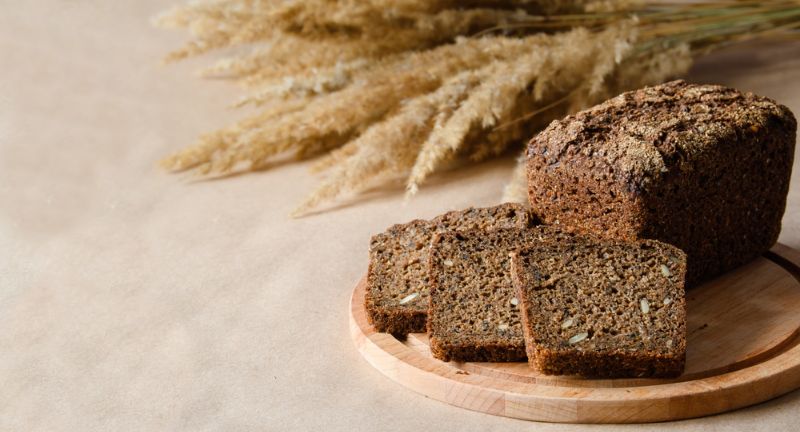
Shutterstock
Opting for 100% whole grain bread is crucial as it provides more fiber and nutrients compared to white bread. Whole grains play a significant role in reducing the risk of heart disease by lowering cholesterol levels and improving blood pressure. They are an easy replacement in any diet where bread is regularly consumed. Additionally, whole grain bread is typically cost-effective and can contribute to a healthy, balanced diet.
Tofu

Shutterstock
Tofu is an excellent source of plant-based protein and contains phytochemicals beneficial for heart health. It is low in saturated fat and cholesterol, making it an ideal option for heart-conscious diets. Tofu can be effortlessly incorporated into various dishes, from stir-fries to smoothies, and serves as an economical protein alternative to meat. This makes it both a heart-healthy and budget-friendly choice for meals.
Health Benefits of Garlic

Shutterstock
Garlic is widely recognized for its ability to lower blood pressure and cholesterol levels, both of which are crucial for maintaining cardiovascular health. The key compound in garlic, allicin, has been shown to support heart health. Additionally, garlic is versatile and can be added to numerous recipes, boosting flavor as well as health benefits. It is also cost-effective, with a long shelf life and the capacity to enhance the taste of any meal.
Beans and Lentils
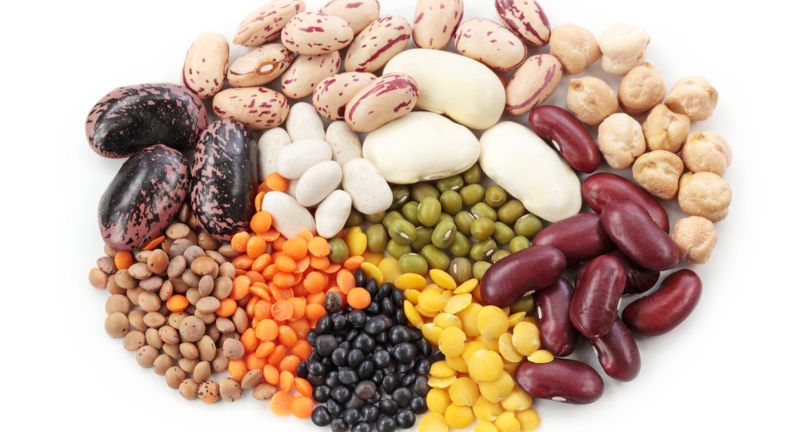
Shutterstock
Beans and lentils are excellent for heart health due to their low fat content and high levels of fiber, protein, and essential vitamins and minerals. They contribute to lowering cholesterol and stabilizing blood sugar, reducing the risk of heart disease. Additionally, these legumes are affordable and versatile, suitable for a wide range of dishes including soups and salads. Their combination of cost-effectiveness, versatility, and nutritional value makes them indispensable in a heart-healthy diet.
Almonds

Shutterstock
Almonds are packed with essential nutrients such as vitamin E, magnesium, and potassium, which contribute significantly to heart health. The healthy fats found in almonds can aid in reducing bad cholesterol levels. Including almonds regularly in your diet can be an essential part of maintaining a balanced diet and preventing heart disease. Purchasing almonds in bulk can be cost-effective, and they serve as a convenient and nutritious snack.
Spinach
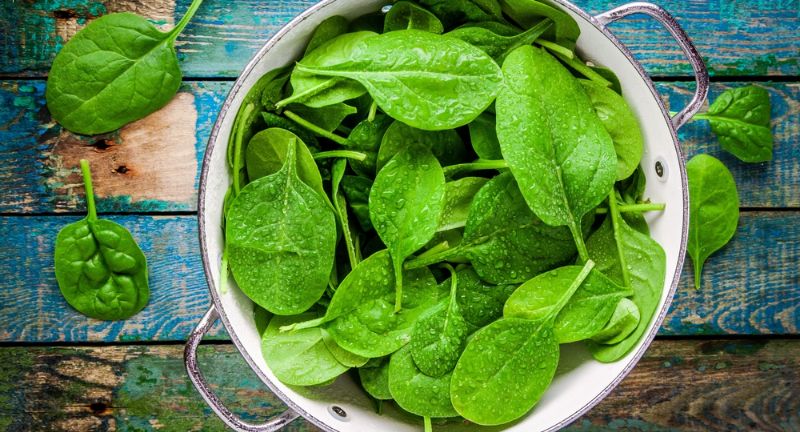
Shutterstock
Spinach is rich in magnesium, potassium, and antioxidants, making it excellent for heart health. It aids in lowering blood pressure and reducing the risk of heart disease. Spinach is versatile and can be included in smoothies, salads, or cooked as a side dish. It is also affordable and readily available, making it easy to incorporate into daily meals.
Conclusion

Shutterstock
Including these heart-healthy foods in your daily diet is an easy and cost-effective way to enhance your cardiovascular health without breaking the bank. Opt for ingredients such as oats, beans, and seasonal fruits to craft a varied and nutritious diet that benefits both your heart and your finances. Small steps towards healthier eating can greatly improve your overall well-being. Embrace these affordable choices and relish the journey to a healthier heart with each meal.
More Money + Investing
-


30 Aldi Treasures You Can’t Leave Without
-


Biden Aims for Historic High with 44.6% Capital Gains Tax…
-


Unmasking Kirkland: The Big Brands Behind Costco’s Best Buys
-


20 Sports That Are Losing Popularity At a Fast Pace
-


Rue21 Bows Out: Another Retailer Closes All Doors
-


10 Beloved Vintage Car Features Lost to Time
-


Mortgage Demand Continues to Fall Despite Drop In Interest Rates
-


Top 24 Canine Guardians: The Best Dog Breeds for Security
-


18 Ultra-Rare U.S. Stamps Worth a Fortune
-


25 Epic Car Flops That Made History
-


25 Things That Deserve More Social Acceptance
-


21 Phrases Assertive People Use to Exude Confidence
